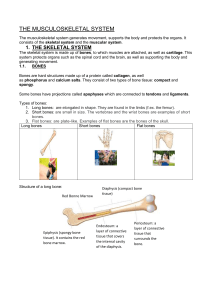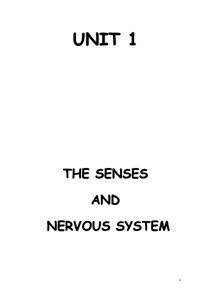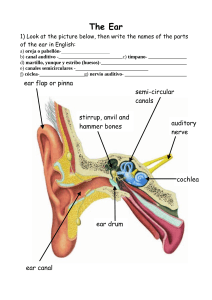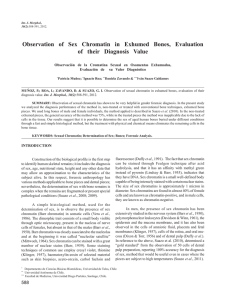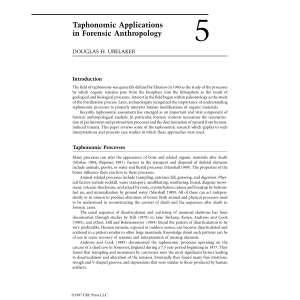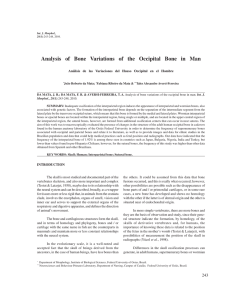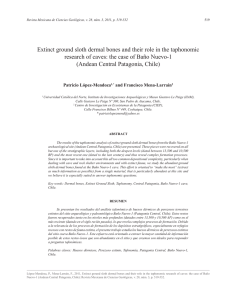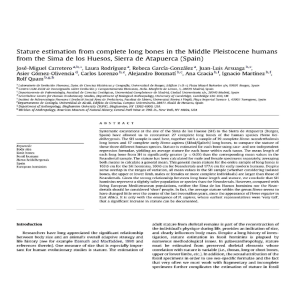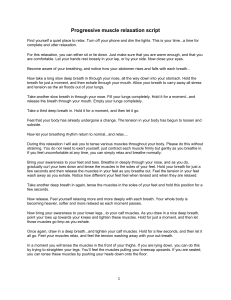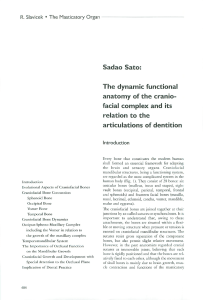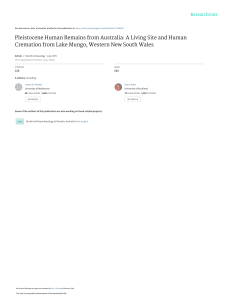The circulatory system
Anuncio
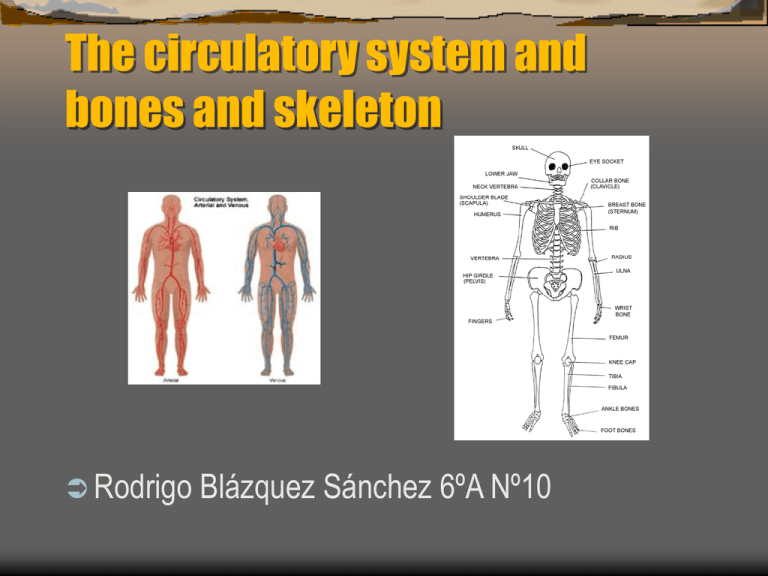
The circulatory system and bones and skeleton Rodrigo Blázquez Sánchez 6ºA Nº10 The circulatory system The circulatory system is responsible for circulation. It transports oxygen, nutrients and many harmful substances to all parts of our body.The circulatory system consits of the heart and the blood vessels. The heart and the blood vessels form a closed circuit, the circulating blood doesn´t go outside your body. But if you hurt, you can blood. The blood vessels Arteries. Carry the blood from the heart to other organs of the body. Veins. They take the blood from the organs to return to the heart. Capillaries. They connect the arteries with the veins. Their walls are very thim. They permit substances to pass trough them. The heart It´s a muscle. Weight 250 grams. This in the left part of toracic cavity. It pumps the blood. It has two auricles and two ventriculas. The functions of the blood To transport nutrients from the small intestine to other organs of the body. To transport oxygen from the lungs to all of the organs of the body. To pick up from the different organs of the body, the carbondioxide and other substances that are harmful to our body. Bones and skeleton Our skeleton consist of all of the organs of the body. The purpose of our skeleton is it support and give shape to our, protect our internal organs and provide an attachment place for our muscles. Bones of the head We have bones in our skull and face: Our skull protects the brain and is made up of flat bones.The main ones are: two parietal bones, the occipital bone, two temporal bones and the frontal bone. We have fourteen bones in our face.they include the maxillar and the mandible, where our teeth are located. Bones of the trunk There are two groups of bones: The vertebral column has short bones, called vertebrae, which have their centre a canal to protect the spinal cord.We have 33 vertebraes: Seven cervical vertebrae, twelve thoracic vertebrae and nine others which in adults are fused together and form two bones called the sacrum and the coccyx. The chest wall protects the lungs and the heart.We have seven pairs of ribs that connectly directly to the sternun, the bone in the centre of our chest.Three more pairs of ribs connect to other ribs. The remaining two pairs of the ribs are called floating ribs. Bones of the extremities We have bones in our arms, legs and feet. The three long bones in our legs are the femure, the tibia and the fibula and a short bone called the patella at the knee.Short bones in our feet are the tarsus, the metatarsus and the phalanges. The three long bones in our arm are the humeros, the uma and the radions.Short bones in our hands are: the carpus, the metacarpus and the phalanges. Our arm bones are connected to the trunk by the scapulus and the cavicle, our legs are connected to the trunk by the ilium. Our mucles Our musculature consist of all muscles of our body.Our body has over 600 muscles, cuabling us to strech a leg, more an eyelid, close a hand, run. Muscles of the head Most of the head are located in the face.Some of the face muscles are: the risorius muscle, the orbicularis muscle and the frontal muscles. We also have the masseter muscles, which we use do more our jaws.
